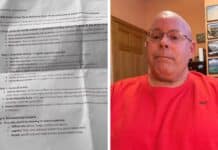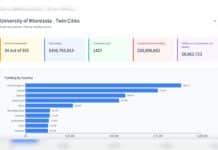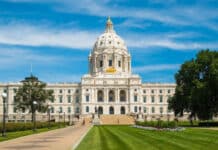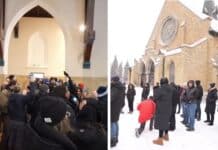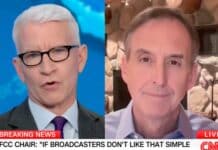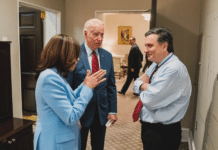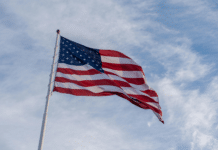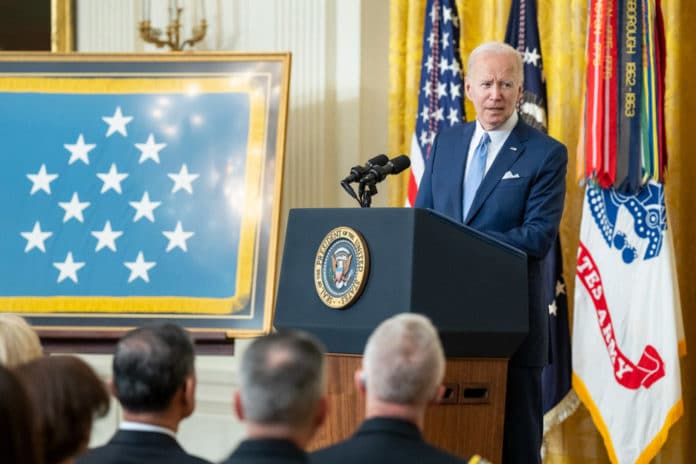
(The Center Square) — President Joe Biden has turned up the rhetoric against Trump supporters and what he calls the “ultra MAGA” wing of the Republican party, but new polling shows most Americans fear his comments are too divisive.
Biden’s rhetoric, and the concern that he has gone too far, ratcheted up when the president gave a primetime speech blasting the “MAGA Republicans” as a “threat to Democracy” and “an extremism that threatens the very foundations of our republic.”
Convention of States Action, along with the Trafalgar Group, released polling data Tuesday showing that 56.8% of those surveyed said Biden’s speech was “a dangerous escalation in rhetoric and is designed to incite conflict amongst Americans.”
“They are working right now, as I speak, in state after state, to give power to decide elections in America to partisans and cronies, empowering election deniers to undermine democracy itself,” Biden said in the speech. “They promote authoritarian leaders, and they fan the flames of political violence that are a threat to our personal rights, to the pursuit of justice, to the rule of law, to the very soul of this country.”
Biden called the political movement “a threat to this country.”
“Donald Trump and the MAGA Republicans represent an extremism that threatens the very foundations of our Republic,” Biden said. “There’s no question that the Republican Party today is dominated, driven, and intimidated by Donald Trump and the MAGA Republicans, and that is a threat to this country.”
Only 19% of Democrats said the remarks went too far.
Notably, 62.4% of Independents said Biden’s remarks were “a dangerous escalation in rhetoric and is designed to incite conflict amongst Americans.” About 31% of Independents said it was acceptable rhetoric during an election year.
Biden took fire after the speech, as The Center Square previously reported.
“Tonight’s divisive and tone deaf speech is a culmination of his team’s work and rhetoric,” said U.S. Rep. Pat Fallon, R-Texas. “This Administration has villainized any American that does not agree with their radical far-left agenda.”
The survey queried more than 1,000 likely voters from Sept. 2-5.

